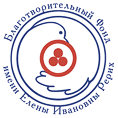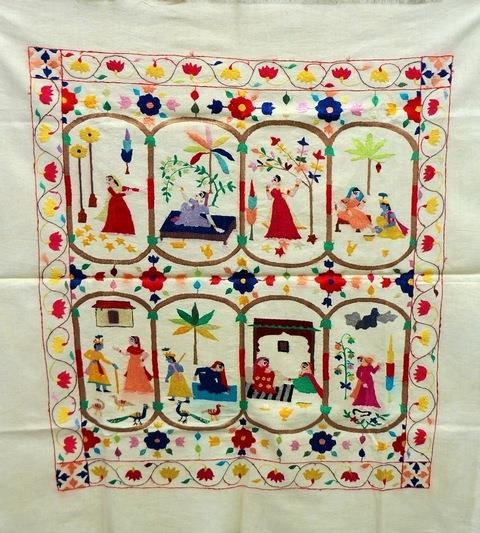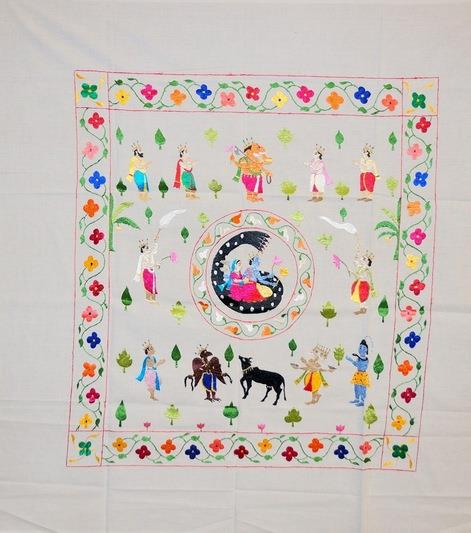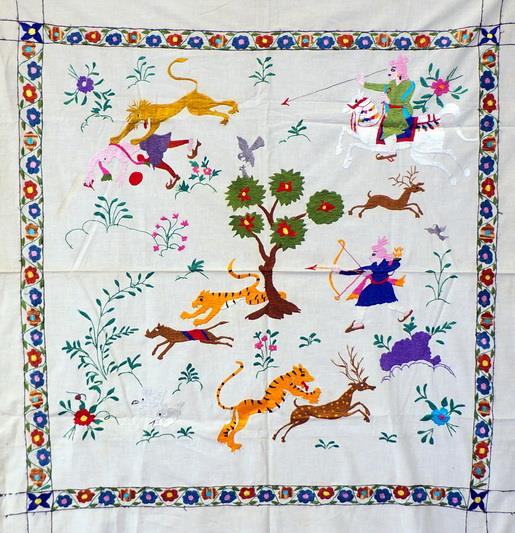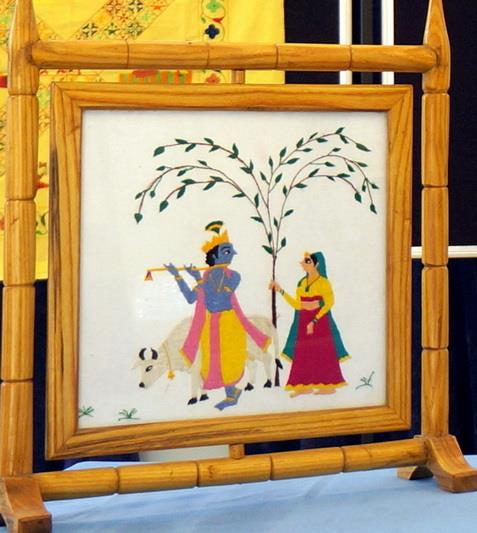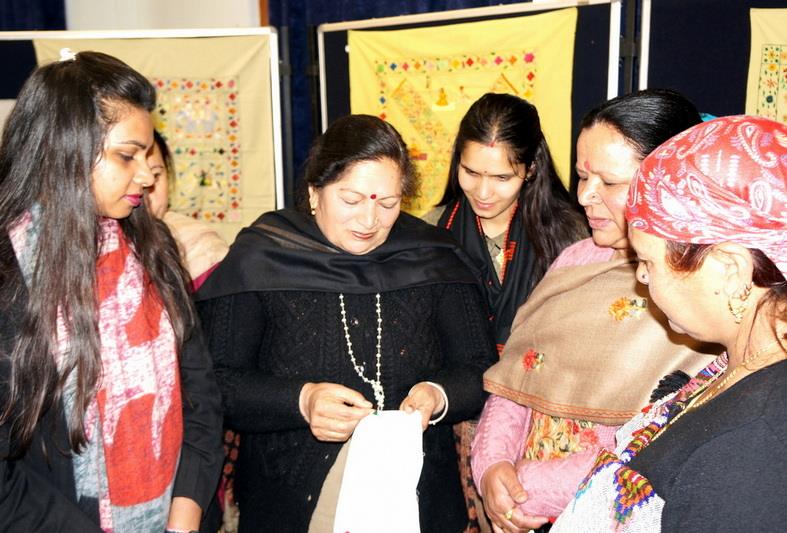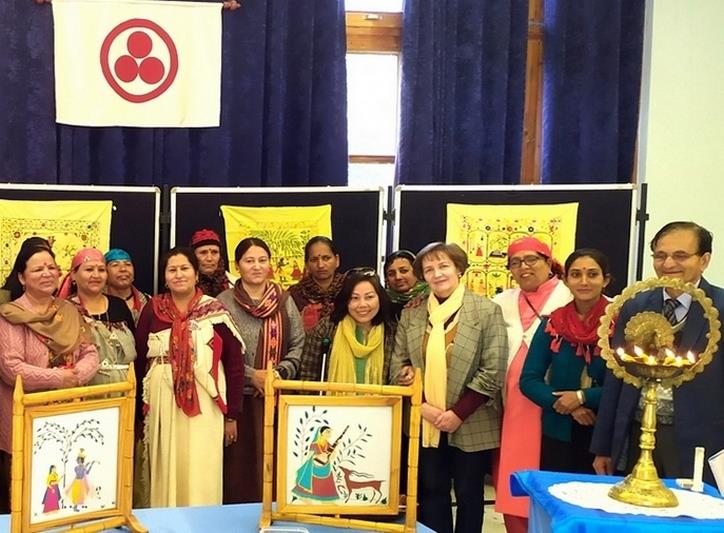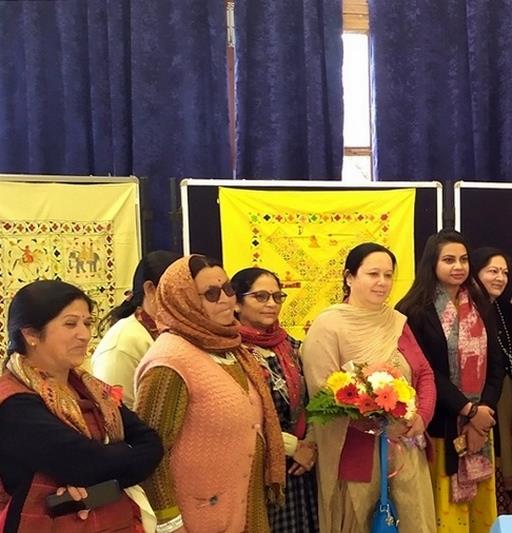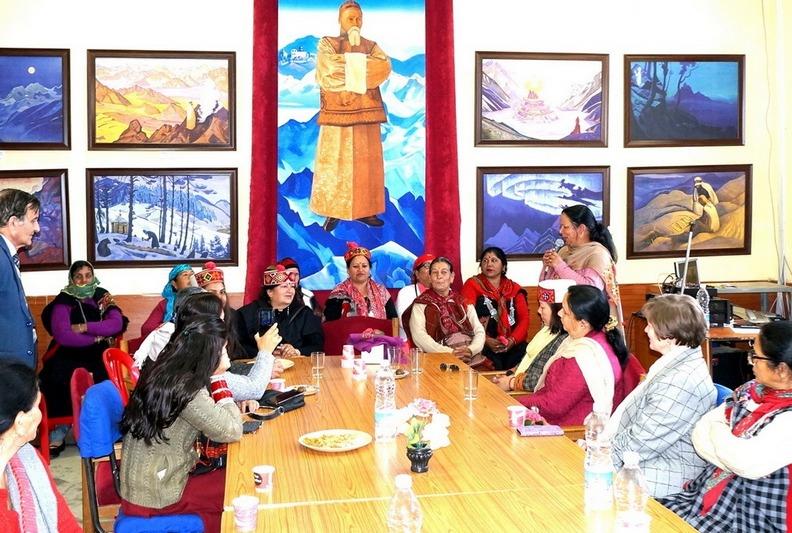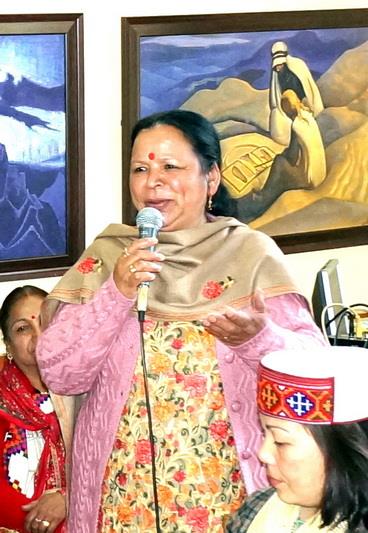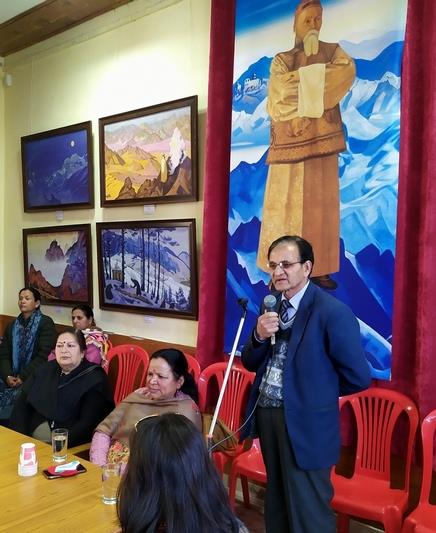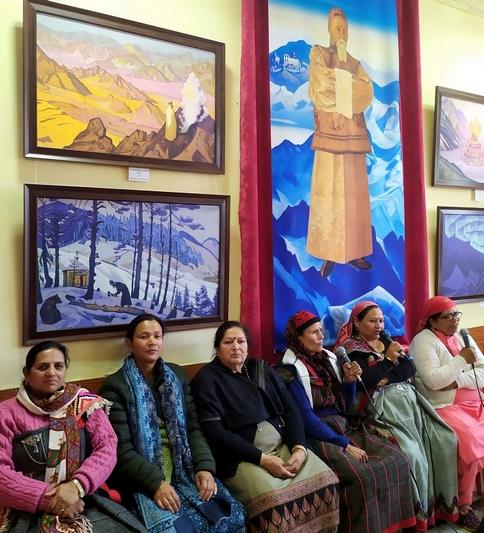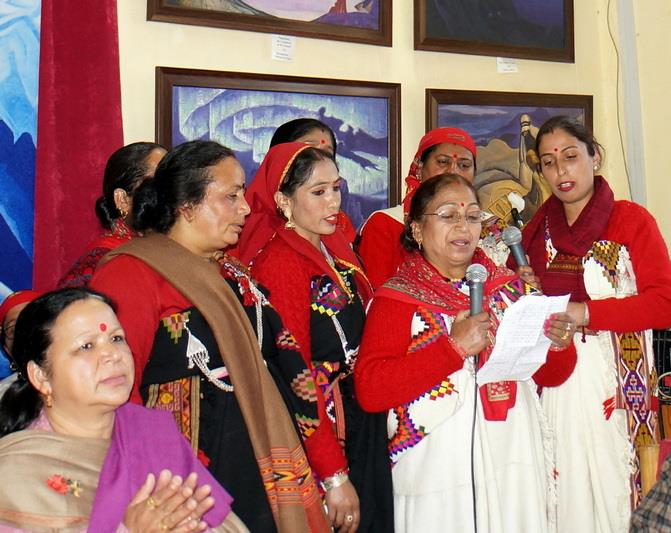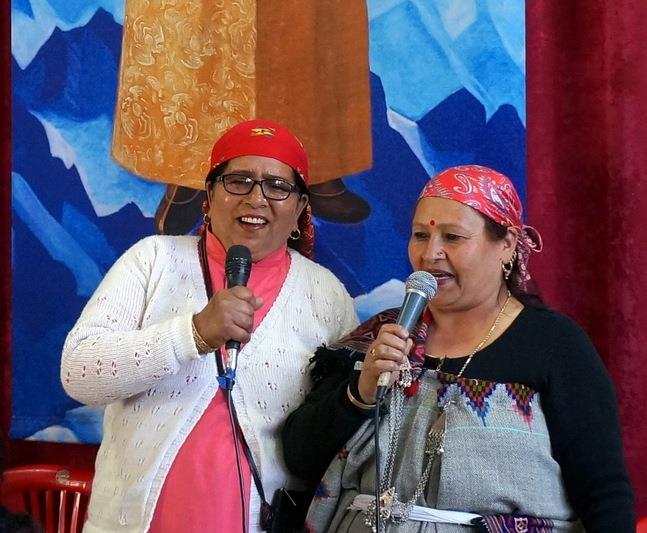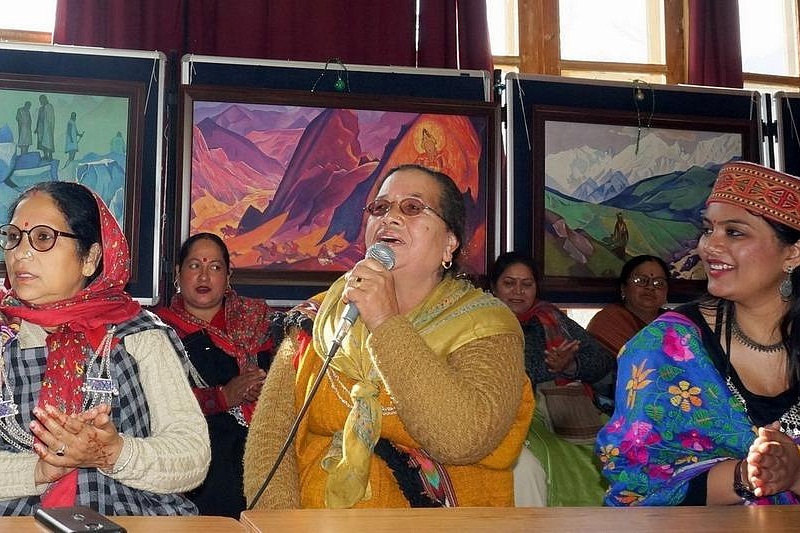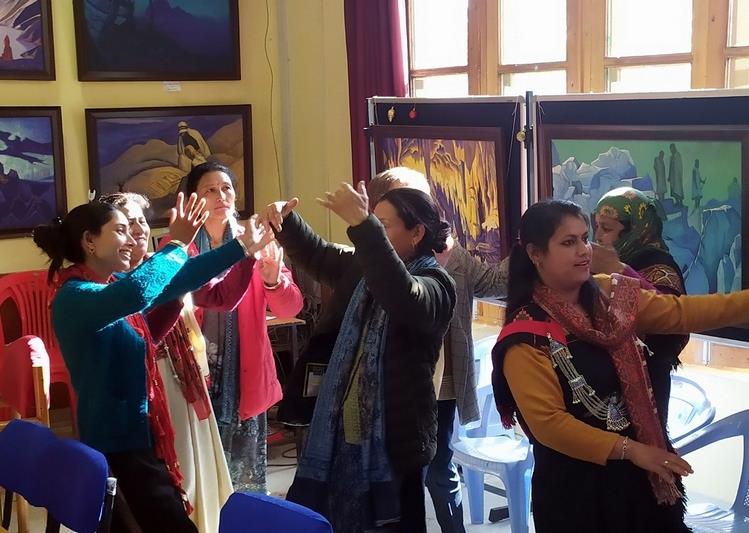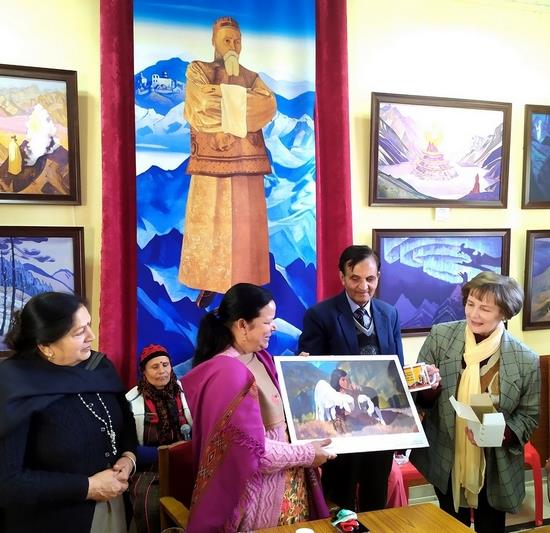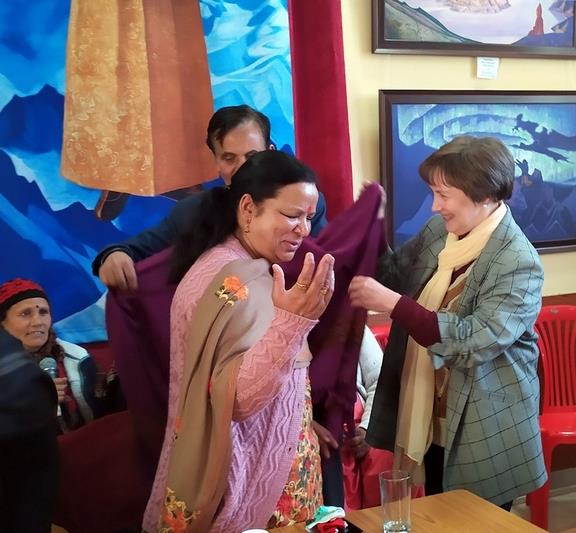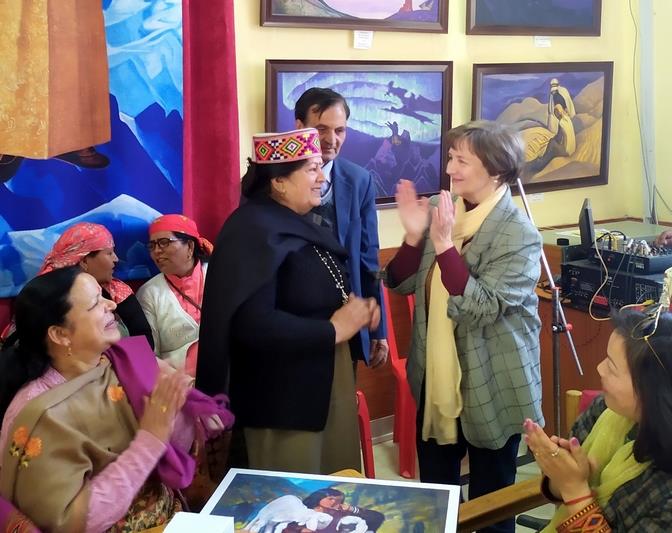International Women's Day at the Roerich Estate (Naggar, Kullu, HP, India)
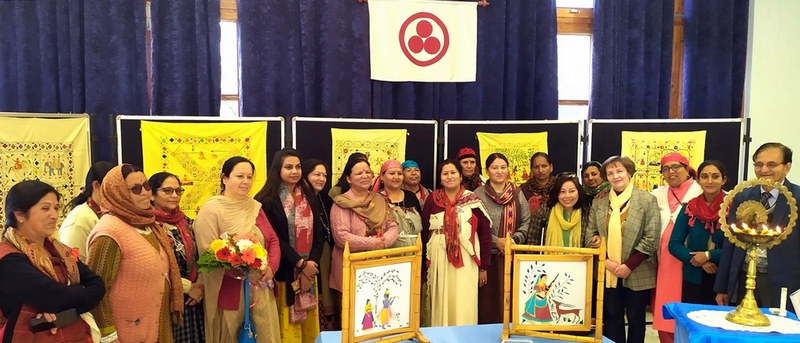
|
International Women's Day on March 8, 2022 was celebrated at the Roerich Family Memorial estate in Naggar. The event was attended by women from towns and villages of the Kullu Valley, for whom the annual visit to the International Roerich Memorial Trust on Women's Day has become a good tradition.
The festive day began with the opening of an exhibition of Chamba Rumal, the traditional art of Chamba Himalayan region, represented by the works of the famous Master crafts women Smt. Kamla Chaddha.
Chamba rumals are hand-embroidered articles of cloth, mostly square or rectangular in shape. The subjects of the rumals are Krishna and Radha, Shiva and Parvati, the events of the epics of Mahabharata and Ramayana, and scenes of battle or hunting. The embroidery is done with bright multi-colored threads, and the special double line makes it equally beautiful and attractive on both sides.
The chief guest of the festive program, Smt. Dhaneshwari Devi, Vice President of Ruling Bhartia Janta Party of Himachal Pradesh, who inaugurated the exhibition, praised the contribution of Smt. Kamla Chaddha to the preservation and revival of the unique art of Chamba.
Smt. Krishna Tashi Palmo, a renowned artist working in the field of Buddhist thangka painting expressed her admiration for the talent of the embroiderer.
Next important event of the program was a Seminar on strengthening the role of women in the modern world. Smt. Dhaneshwari Devi highlighted the achievements of the Himachal Pradesh Government in improving the lives of women, creating more opportunities for ladies to play an equal role with men in society and to promote progress in the country.
Smt. Larisa Surgina and Sr. Ramesh Chandra, Russian and Indian curators of the IRMT, welcoming the guests, wished everyone present health, success and prosperity and reminded the audience of two outstanding women of the Roerich family – Helena Roerich and Devika Rani Roerich.
Helena Roerich, the wife and faithful companion of Nicholas Roerich, thinker and philosopher, devoted many pages of her letters to reflections on the evolutionary role of women in the modern world. She believed that women's equality should be recognized on a planetary scale. This requires laws that guarantee women equal rights in all areas of life. But laws alone are not enough – women must constantly work on themselves, develop their abilities, raise their cultural level. It is the woman who has to restore the Balance of the World, and for this, women must rise spiritually, morally, and intellectually.
Miss Sonia Chandra, Coordinator of Nehru Yuvak (youth) Kendra, spoke about her organization's plans to educate and organize the activities of young people, especially girls, and assured her readiness to promote these plans.
Indian curator Sh. Ramesh Chander spoke about the activities being carried out by the IRMT to support and promote the work of talented women – artists and masters of handicraft.
A women's festival is bound to have songs and dances. On this day, folk songs of the Kullu and Chamba valleys performed by Hira Devi, Kali Devi and other guests sounded at the Roerich Estate. And in conclusion, according to tradition, all ladies were united by the beloved Kullu «nati» dance.

